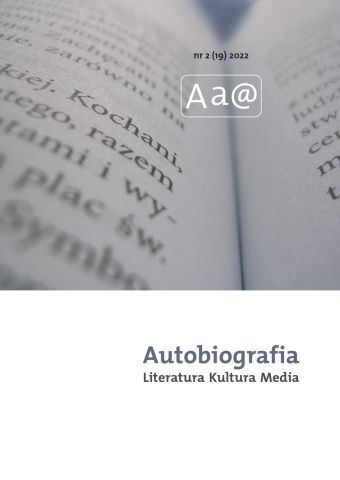






| Autorzy: |
ADRIANA
KRAWIEC

Uniwersytet Jagielloński |
| Słowa kluczowe: | Narodowe Muzeum Holokaustu w Waszyngtonie polityka pamięci prawa człowieka |
| Data publikacji całości: | 2022-12 |
| Liczba stron: | 16 (139-154) |
| 1. | An Act to Establish the United States Holocaust Memorial Council, Public Law 96–388. |
| 2. | Alexander, Jeffrey C. “Culture trauma, morality and solidarity: The social construction of ‘Holocaust’ and other mass murders”, Thesis Eleven 132 (2016): 1: 3–16. |
| 3. | Alexander, Jeffrey C. “On the Social Construction of Moral Universals, The ‘Holocaust’ from War Crime to Trauma Drama”, European Journal of Social Theory 5 (2002): 1: 5-85. |
| 4. | Ayer, Elenor H. The United States Holocaust Memorial Museum. America keeps the memory alive. New York: Macmillan Publishing Company, 1994. |
| 5. | Bernard-Donals, Michael. Figures of Memory: The Rhetoric of Displacement at the United States Holocaust Memorial Museum. Albany: Sunny Press, 2016. |
| 6. | Content Committee meeting minutes, 29th February 1988. United States Holocaust Memorial Museum Institutional Archives. 1997-005.07. |
| 7. | Exhibition Story Outline Presented to the Content Committee, The United States Holocaust Memorial Museum, 11th May, 1988. United States Holocaust Memorial Museum Institutional Archives. 1997-004. |
| 8. | Fallace, Thomas D. The emergence of Holocaust Education in American Schools. New York: Palgrave Macmillan, 2008. |
| 9. | “In Fitting memory: Holocaust memorials and Political culture”. United States Holocaust Memorial Museum Institutional Archives. 2001.165. |
| 10. | Howarth, David. Discourse. Translated by Anna Gąsior-Niemiec. Warszawa: Oficyna Naukowa, 2008. |
| 11. | Huener, Jonathan. Auschwitz, Poland, and the politics of commemoration, 1945–1979. Ohio: Ohio University Press, 2003. |
| 12. | Konwencja w sprawie zapobiegania i karania zbrodni ludobójstwa, uchwalona przez Zgromadzenie Ogólne Narodów Zjednoczonych dnia 9 grudnia 1948 r. (ratyfikowana zgodnie z ustawą z 18.07.1950 r.). Dz.U. 1952 nr 2 poz. 9. |
| 13. | Krawiec, Adriana. “Representation of the Holocaust in American culture on the example of the USHMM”. Paper presented at the 3rd International Interdisciplinary conference Memory guilt and shame, Gdańsk, 21st-22nd October 2021. |
| 14. | Linenthal, Edward. Preserving memory. The Struggle to Create America’s Holocaust Museum. New York: Columbia University Press, 2001. |
| 15. | MacNaughton, Gilian, Mariah McGill, “Economic and Social Rights in the United States: Implementation Without Ratification”. Northeastern University Law Journal 4 (2012), 2: 365–406. |
| 16. | Macdonald, Sharon. Memorylands Heritage and identity in Europe today. London-New York: Routledge, 2013. |
| 17. | Nijakowski, Lech M. “Pojęcie ludobójstwa: definicje, propaganda i walki symboliczne”. In: Auschwitz a zbrodnie ludobójstwa XX wieku, eds. Alicja Bartuś, Piotr Trojański, 28–43. Oświęcim: Państwowe Muzeum Auschwitz-Birkanau, 2012. |
| 18. | Novick, Peter. The Holocaust and Collective Memory. The American experience. London: Bloomsbury, 2001. |
| 19. | Nowicka-Franczak, Magdalena. “Postfoucaultowska analiza dyskursu: przypadek sporu o Jedwabne”. In: Analiza dyskursu publicznego: przegląd metod i perspektyw badawczych, eds. Michał Otrocki, Tomasz Piekot, Jerzy Stachowiak, 311–344. Warszawa: Wydawnictwo Akademickie Sedno, 2017. |
| 20. | Pastusiak, Longin. “Prawa człowieka w polityce Stanów Zjednoczonych”. Przegląd Dziennikarski, 15.05.2018. Access 23.07.2022. https://przegladdziennikarski.pl/prawa-czlowieka-w-politycestanow-zjednoczonych/. |
| 21. | Presentation of the Report of the President’s commission on the Holocaust to The President of the United States by Elie Wiesel, Chairman, The Rose Garden, The White House, Washington. D.C. 27th September, 1979. Based on the data provided by Jeffrey Carter, Management Officer & Institutional Archivist (May 1998–April 2022). |
| 22. | “Report to the President. President’s Commission on the Holocaust, September 1979”. United States Holocaust Memorial Museum Institutional Archives. 2001.165. |
| 23. | “Remarks by Nobel Prize Laureate Elie Wiesel at The Dedication of The United States Memorial Holocaust Museum, Washington, April 22, 1993”. Based on the data provided by Jeffrey Carter,Management Officer & Institutional Archivist of the USHMM. |
| 24. | “Remarks by Dr. Michael Berenbaum. The United States Holocaust Memorial Museum Presentation to a Joint Meeting of the Museum Development Committee and the Content Committee, January 20, 1988, The National Gallery”. United States Holocaust Memorial Museum Institutional Archives. 1997-016.1. |
| 25. | “Remarks by the President at the United States Holocaust Memorial Museum”. The White House. April 23, 2012. Access 25.07.2022. https://obamawhitehouse.archives.gov/the-press-office/2012/04/23/remarks-president-united-states-holocaust-memorial-museum. |
| 26. | Rudawski, Bogumił. “Czym jest Zagłada dla historyka?”. Ethics in Progress 5 (2014), 2: 305–317. |
| 27. | “The U.S. Declaration of Independence”. National Archives. Access 2.07.2022. https://www.archives.gov/founding-docs/declaration-transcript. |
| 28. | “The Holocaust”. Permanent exhibition (PE) of the United States Holocaust Memorial Museum (USHMM), the description of the PE is based on the author’s visit to the museum financed by a subsidy of the Faculty of International and Political Studies of the Jagiellonian University for research activities. |
| 29. | “To Bear Witness, to Remember, and to Learn”. A Confidential Report on Museum Planning prepared for the United States Holocaust Manorial Council 28th February, 1984. United States Holocaust Memorial Museum Institutional Archives. 1997-014. |
| 30. | Tocqueville, Alexis de. O demokracji w Ameryce, 1835–1840. Translated by Marcin Król, Barbara Janicka. Warszawa: Wydawnictwo Aletheia, 2019. |
| 31. | Weinberg, Jeshajahu, Rina Elieli. The Holocaust Museum in Washington. New York: Rizzoli Electa, 1995. |
| 32. | Wolff-Powęska, Anna. “Zwycięzcy i zwyciężeni. II wojna światowa w pamięci zbiorowej narodów”, Przegląd Zachodni 2 (2005): 7. |
| 33. | Ziębińska Witek, Anna. Historia w muzeach. Studium ekspozycji Holokaustu. Lublin: UMCS, 2011. |